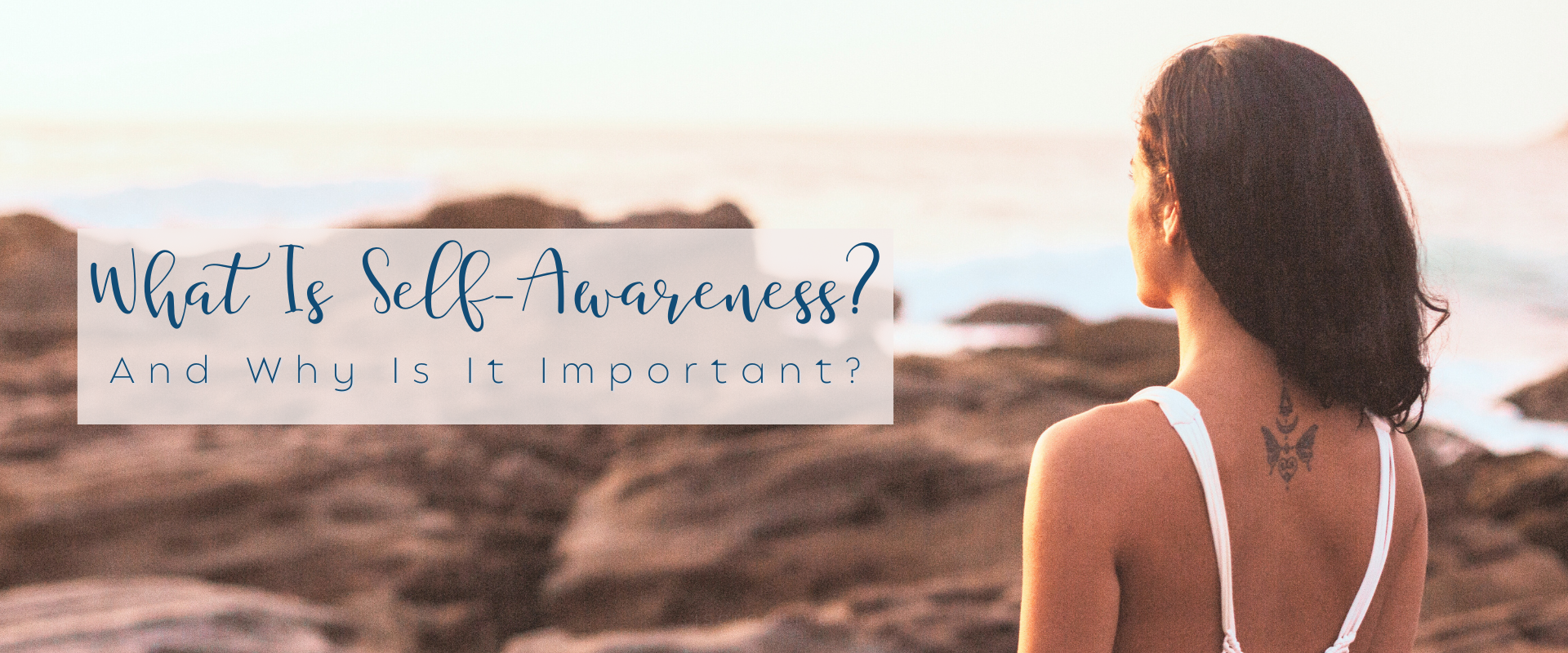
Have you ever stopped to wonder exactly why you do the things you do? Think back to the last time you had a really bad day. Maybe you ended up going home and eating a whole package of Oreos. And then thirty minutes later, realized eating them didn’t solve your problem or make you feel any better? Or perhaps last time you felt particularly overwhelmed, instead of starting to chip away at your to-do list, you binge-watched an entire season (or two) of a show. And when you finally turned off Netflix, felt even more overwhelmed because you just wasted hours and accomplished nothing?
If you are nodding along and thinking, “Yes. Sometimes it feels like life just happens to me and I don’t have any control over it,” I’d like to teach you a different way.
It’s called self-awareness and you’ve probably heard the word before—it’s one of those words that seems to get thrown around a lot, along with self-care and other buzzy words. But if you are ready to change some patterns in your life, it’s a term you need to get very familiar with.
The patterns you want to change don’t have to be eating junk food or your screen habits. It might be a pattern in your relationships, or the way you react to certain situations. To start making changes, you have to become self-aware. This isn’t a one-time, check-it-off-the-list type situation. It’s going to be a process, and according to author Mark Manson, there are three levels of self-awareness you need to move through.
Level 1: Choosing feeling over distraction.
We live in a world full of distractions. We carry around distractions in our pocket. If we’re bored in a grocery line or waiting room, we pull out our phones. If the conversation around us gets boring, we can tune into a different conversation online. If we get into a fight with a friend or have a bad day at work, there are endless options to forget: a new show, mind-numbing hours of Candy Crush, scrolling our favorite websites. And that’s not mentioning all the distractions that existed well before the internet: food, alcohol, and hundreds of other things can help us hide our true feelings. The first step to becoming more self-aware is to realize when we are choosing distraction instead of feeling—and then make a different choice. It’s not that you have to completely ditch your favorite distractions, but rather choosing to not let them cover up your feelings. Recognize when you are using distractions to not feel something. And then, let yourself feel that thing.
Level 2: Uncovering your feelings.
Once you’ve chosen feeling over distraction, it’s time to start figuring out what your feelings mean. Is your heart racing because you are anxious or because you are angry? Are you feeling overwhelmed or are you using your to-do list to hide the fact that you are actually terrified about taking a risk? Naming and understanding what you are feeling is crucial to the process of becoming more self-aware. When you understand your emotions, you are better able to recognize why you do the things you do.
Level 3: Recognizing your weaknesses.
As we start choosing feelings over distractions, and uncovering just what those feelings are, we can start to uncover patterns and weaknesses in ourselves. We can recognize that maybe it’s not a good idea to make decisions when we’re hungry (or before coffee). We can see that when we have a bad day at work, we bring it home. Until we understand these things about ourselves, it’s hard to know how to break bad habits and patterns.
Once you’ve moved through these three levels, the goal is to move towards accepting yourself. As you become more aware of your feelings and weaknesses, you also become more aware of how to be more empathetic and compassionate towards yourself—and others.
The journey towards self-awareness is going to take work. There’s no set amount of time at each level, and your path might be more of a winding road than a straight shot through the three levels. But once you’ve become aware of your feelings and weaknesses, you’ll have a clearer view of who you are. And this will help you be more confident, more decisive, and able to make consistent progress towards creating the life you want.
Self-awareness is a practice, something you can constantly be cultivating and improving. A few tips to try on the journey towards improving your self-awareness:
- Think about the last stressful situation you were in. How did you respond? If you’d gone into the situation knowing it was going to be stressful, how could you have prepared yourself differently? If your last stressful situation was a tough conversation with a boss or a loved one, think about how you could have prepared yourself differently. If you’d scheduled twenty minutes to take a walk afterwards to clear your head instead of jumping straight into your next commitment, how might that have changed the experience for you?
- Become intentional about eliminating distractions so you can pay more attention to what’s happening in the moment. Put your phone somewhere you can’t easily access it. Do you always have the television on in the background? Practice leaving it off for twenty or thirty minutes at a time and build up to longer time periods (if you really need something in the background, opt for instrumental music instead).
- Journal. You’ll be surprised at what you can uncover by taking time to journal. If everyday journaling doesn’t appeal to you, consider trying it when you are having trouble making a decision or dealing with a stressful situation.
As you learn to cultivate self-awareness, you’ll move further down the path of creating a life you love.